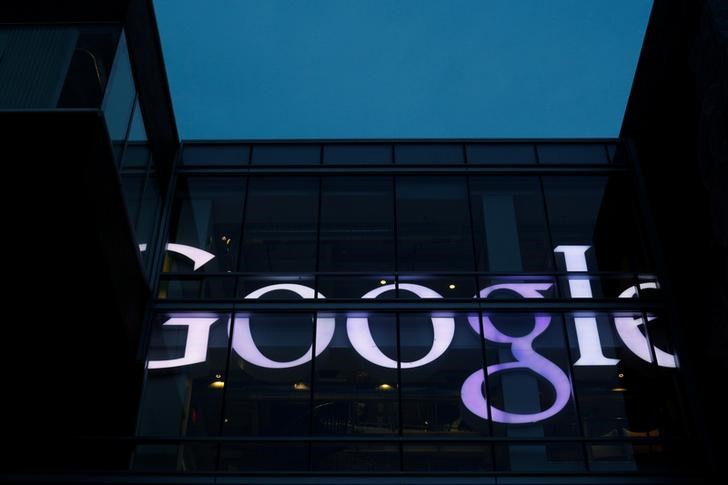© Reuters. FILE PHOTO: A logo is pictured at Google’s European Engineering Center in Zurich, Switzerland July 19, 2018 REUTERS/Arnd Wiegmann/File Photo/File Photo
By Diane Bartz
WASHINGTON (Reuters) – Google argued on Tuesday the U.S. was wrong to say the search and advertising giant broke the law to hold onto its massive market share, noting its search engine was wildly popular because of its quality and that dissatisfied users could switch with “a few easy clicks.”
The Justice Department has accused Alphabet (NASDAQ:)’s Google of paying $10 billion annually to device makers like Apple (NASDAQ:), wireless companies like AT&T (NYSE:), and browser makers like Mozilla to keep its search engine’s market share at around 90%.
Google’s search engine is a key part of its business, driving advertising sales and other areas of profit for the world’s fourth most valuable company.
“This case is about the future of the internet,” said Kenneth Dintzer, arguing for the Justice Department that Google began in 2010 to illegally maintain its monopoly.
But Google’s lawyer, John Schmidtlein, said the payments compensate partners for the work of making sure that the software gets timely security updates and other maintenance.
“Users today have more search options and more ways to access information online than ever before,” Schmidtlein added. He went on to say Google won competitions that Apple and Mozilla held to pick the best search engines.
Unhappy consumers, Google’s Schmidtlein argued, need just “a few easy clicks” to replace the Google app from their devices or call up Microsoft (NASDAQ:)’s Bing, Yahoo or DuckDuckGo in a browser to use an alternative search engine.
The Justice Department’s Kenneth Dintzer argued earlier on Tuesday that, in addition to the payments, Google manipulated auctions for ads placed on the internet in order to raise prices for advertisers.
‘SCALE MATTERS’
“Defaults are powerful, scale matters and Google illegally maintained a monopoly for more than a decade,” said Dintzer. The consequences are that without serious competition, Google innovated less and paid less attention to other concerns like privacy, he said.
Dintzer also said the department found evidence that Google had taken steps to protect communications about the payments it made to companies like Apple. “They knew these agreements crossed antitrust lines,” he said.
He showed a chat where Google CEO Sundar Pichai asked for the history function to be turned off.
William Cavanaugh, speaking for states led by Colorado, focused on allegations that Google balked at giving Microsoft access to features on Google Marketing Platform SA360, arguing that it did so for financial reasons.
The government’s first witness was Google economist Hal Varian, who was asked about discussions inside the company in the mid- and early 2000s about the importance of Google becoming the default on home pages.
“I think in general having the default is valuable,” he said.
Opening arguments in the trial occurred before a packed federal court in Washington. The trial is expected to last up to 10 weeks, with two phases. In the first, Judge Amit Mehta will decide if Google has broken antitrust law in how it manages search and search advertising.
If Google is found to have broken the law, Judge Mehta will then decide how best to resolve it. He may decide simply to order Google to stop practices he has found to be illegal or he may order Google to sell assets.
The government, in its complaint, asked for “structural relief as needed” but did not define it.
The legal fight has huge implications for Big Tech, which has been accused of buying or strangling small competitors but has insulated itself against many accusations of breaking antitrust law because the services the companies provide to users are free, as in the case of Google, or inexpensive, as in the case of Amazon.com (NASDAQ:).
Previous major antitrust trials include Microsoft, filed in 1998, and AT&T, filed in 1974. The AT&T breakup in 1982 is credited with paving the way for the modern cell phone industry, while the fight with Microsoft is credited with opening space for Google and others on the internet.
Read the full article here













